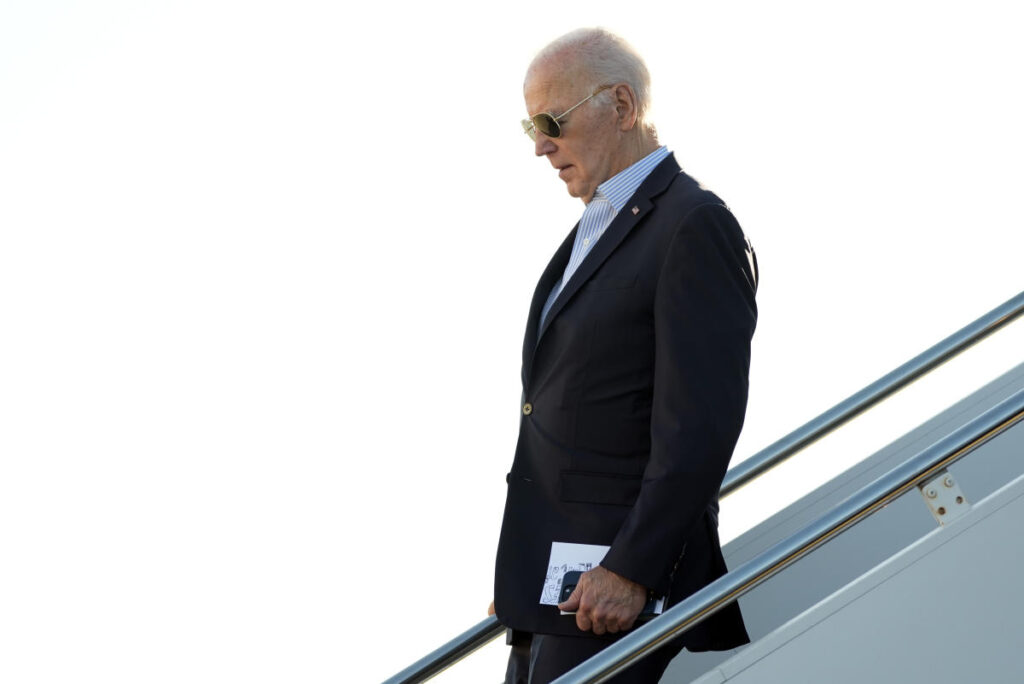The recent presidential election loss has plunged the Democratic Party into turmoil, with increasing frustration directed toward President Joe Biden. Many party insiders accuse him of inadequately preparing Vice President Kamala Harris for the race, arguing that he should have exited the presidential race sooner. They assert that Biden’s age, perceived mental decline, and unpopularity created significant disadvantages for Democrats. Well-known figures, like Jim Manley, a former aide to Harry Reid, argue that Biden’s decision to remain in the race for so long has obstructed the party’s chances for success, with many Democrats expressing deep resentment at being compelled to support a candidate that they felt the electorate had decisively rejected.
Democratic officials and operatives reflect on what they believe were squandered opportunities under Biden’s leadership, particularly regarding the timing of Harris taking over the nomination. Harris inherited a challenging situation with just 107 days left before the election, and while there were early signs of a resurgence in support, they were ultimately overshadowed by ongoing public dissatisfaction rooted in economic concerns, namely inflation. This situation was aggravated by Biden’s failure to effectively communicate his administration’s achievements and the apparent misalignment of core Democratic messages with evolving voter sentiments.
The repercussions of the presidential defeat extend beyond the immediate political climate. Observers note that Biden’s administration may be permanently marked by Trump’s resurgence, complicating any narrative regarding his legislative achievements. Many within the party caution that Biden’s reluctance to step aside could appear as a failure in strategic political judgment, suggesting that a lengthy campaign could have afforded time for a more thoughtful approach to Harris’s candidacy. While some argue that any Democrat may have faced insurmountable challenges in the current political landscape, the blame for the loss remains heavily placed on Biden’s shoulders.
Despite the turmoil, Biden reached out to Trump to congratulate him post-election, highlighting the personal connections retained even amid political struggles. While White House aides push back against critiques regarding Biden’s reelection campaign, they emphasize the breadth of economic challenges faced, which contributed to broader voter discontent. Inflation, in particular, has been identified as a pivotal issue that was inadequately addressed by the administration, leading to a disillusioned electorate that eventually favored Republicans.
Many in the party echo sentiments that it’s time for reflection rather than finger-pointing, recognizing a collective failure to resonate with voters effectively. Some party leaders highlight that Biden’s administration misjudged the reasons behind the 2020 electoral victory, mistaking temporary dissatisfaction with Trump as a permanent endorsement of Biden. Critics argue that this miscalculation led to a failure in preparing younger potential candidates to step in, thus freezing the party’s search for a more dynamic leadership alternative. The stark contrast between Biden’s initial strategy and the realities of his reelection bid has prompted party officials to rethink their approach and recalibrate their future strategies.
As the Democratic Party looks forward, sentiments around Biden’s legacy are fraught with contradiction. While acknowledging his previous accomplishments, many are now concerned that his leadership has inadvertently paved the way for Trump’s return and significantly weakened the party’s overall standing. The combination of economic pressures and the apparent disconnect between party leadership and voter concerns continues to fuel dissatisfaction within the ranks, pushing Democrats to confront the urgent need for authentic messaging and robust candidates moving forward. Without internal cohesion and a renewed vision, the Democratic Party risks remaining further entangled in a cycle of defeat.

